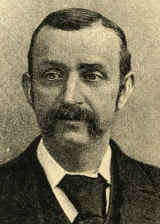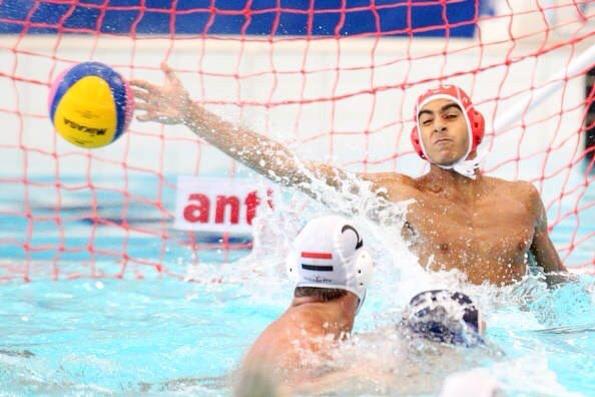|
Jim Walsh (water Polo)
James Richard Walsh was a former water polo representative from New Zealand. At the 1950 British Empire Games, Walsh won the silver medal as goalkeeper In many team sports which involve scoring goals, the goalkeeper (sometimes termed goaltender, netminder, GK, goalie or keeper) is a designated player charged with directly preventing the opposing team from scoring by blocking or intercepting o ... of the New Zealand men's water polo team. References http://www.olympic.org.nz/nzolympic/athlete/jim-walsh Year of birth missing Year of death missing Commonwealth Games silver medallists for New Zealand New Zealand male water polo players Water polo players at the 1950 British Empire Games {{NewZealand-waterpolo-bio-stub ... [...More Info...] [...Related Items...] OR: [Wikipedia] [Google] [Baidu] |
Water Polo
Water polo is a competitive team sport played in water between two teams of seven players each. The game consists of four quarters in which the teams attempt to score goals by throwing the ball into the opposing team's goal. The team with the most goals at the end of the game wins the match. Each team is made up of six field players and one goalkeeper. Excluding the goalkeeper, players participate in both offensive and defensive roles. It is typically played in an all-deep pool where players cannot touch the bottom. A game consists mainly of the players swimming to move about the pool, treading water (mainly using the eggbeater kick), passing the ball, and shooting at the goal. Teamwork, tactical thinking and awareness are also highly important aspects. Water polo is a highly physical and demanding sport and has frequently been cited as one of the most difficult to play. Special equipment for water polo includes a water polo ball, a ball of varying colors which floats on the ... [...More Info...] [...Related Items...] OR: [Wikipedia] [Google] [Baidu] |
British Empire Games
The Commonwealth Games, often referred to as the Friendly Games or simply the Comm Games, are a quadrennial international multi-sport event among athletes from the Commonwealth of Nations. The event was first held in 1930, and, with the exception of 1942 and 1946 (cancelled due to World War II), have successively run every four years since. The Games were called the British Empire Games from 1930 to 1950, the British Empire and Commonwealth Games from 1954 to 1966, and British Commonwealth Games from 1970 to 1974. Athletes with a disability are included as full members of their national teams since 2002, making the Commonwealth Games the first fully inclusive international multi-sport event. In 2018, the Games became the first global multi-sport event to feature an equal number of men's and women's medal events and four years later they are the first global multi-sport event to have more events for women than men. Inspired by the Inter-Empire Championships, part of the 1 ... [...More Info...] [...Related Items...] OR: [Wikipedia] [Google] [Baidu] |
1950 British Empire Games
The 1950 British Empire Games was the fourth staging of what is now called the Commonwealth Games. It was held in Auckland, New Zealand between 4 and 11 February 1950, after a 12-year gap from the third edition of the games. The main venue was Eden Park, although the closing ceremonies were held at Western Springs Stadium, see New Zealand at the 1950 British Empire Games. The fourth games were originally awarded to Montreal, Canada and were to be held in 1942 but were cancelled due to World War II. Participating teams (Teams participating for the first time in bold). * * * * * * * * * * * * Games venue The main stadium was at Eden Park. Other venues were the Auckland Town Hall (boxing and wrestling), the Drill Hall (fencing), Western Springs (cycling and the closing ceremony) Lake Karapiro (rowing), and the Newmarket Olympic Pool (swimming). Accommodation was at the Ardmore Teachers' Training College, away at South Auckland. Total attendance was 246,694; high ... [...More Info...] [...Related Items...] OR: [Wikipedia] [Google] [Baidu] |
Goalkeeper (water Polo)
In water polo, the goalkeeper occupies a position as the last line of defense between the opponent's offence and their own team's goal, which is . The goalkeeper position is unique; they possess certain privileges and are subject to different restrictions than those of field players. Accordingly , they possess different skills than those of the field players. Goalkeepers often have longer playing careers than field players because they need mental power rather than physical power. In water polo, the goalkeeper is commonly known as the ''goalie'' or ''keeper'' and may also be known as ''the man/woman in the cage''. Burckett, p. 3 History The position of the goalkeeper has existed since the game of water polo originated. At that time, the object of the game was to touch the ball on the opponent's end of the pool. Wilson, pp. 4–5 The goalkeeper would wait at the end of the pool until an opposing player approached the goal, when the goalkeeper would try to stop that player, f ... [...More Info...] [...Related Items...] OR: [Wikipedia] [Google] [Baidu] |
Year Of Birth Missing
A year or annus is the orbital period of a planetary body, for example, the Earth, moving in its orbit around the Sun. Due to the Earth's axial tilt, the course of a year sees the passing of the seasons, marked by change in weather, the hours of daylight, and, consequently, vegetation and soil fertility. In temperate and subpolar regions around the planet, four seasons are generally recognized: spring, summer, autumn and winter. In tropical and subtropical regions, several geographical sectors do not present defined seasons; but in the seasonal tropics, the annual wet and dry seasons are recognized and tracked. A calendar year is an approximation of the number of days of the Earth's orbital period, as counted in a given calendar. The Gregorian calendar, or modern calendar, presents its calendar year to be either a common year of 365 days or a leap year of 366 days, as do the Julian calendars. For the Gregorian calendar, the average length of the calendar year (the mea ... [...More Info...] [...Related Items...] OR: [Wikipedia] [Google] [Baidu] |
Year Of Death Missing
A year or annus is the orbital period of a planetary body, for example, the Earth, moving in its orbit around the Sun. Due to the Earth's axial tilt, the course of a year sees the passing of the seasons, marked by change in weather, the hours of daylight, and, consequently, vegetation and soil fertility. In temperate and subpolar regions around the planet, four seasons are generally recognized: spring, summer, autumn and winter. In tropical and subtropical regions, several geographical sectors do not present defined seasons; but in the seasonal tropics, the annual wet and dry seasons are recognized and tracked. A calendar year is an approximation of the number of days of the Earth's orbital period, as counted in a given calendar. The Gregorian calendar, or modern calendar, presents its calendar year to be either a common year of 365 days or a leap year of 366 days, as do the Julian calendars. For the Gregorian calendar, the average length of the calendar year (the me ... [...More Info...] [...Related Items...] OR: [Wikipedia] [Google] [Baidu] |
Commonwealth Games Silver Medallists For New Zealand
A commonwealth is a traditional English term for a political community founded for the common good. Historically, it has been synonymous with "republic". The noun "commonwealth", meaning "public welfare, general good or advantage", dates from the 15th century. Originally a phrase (the common-wealth or the common wealth – echoed in the modern synonym "public wealth"), it comes from the old meaning of " wealth", which is "well-being", and is itself a loose translation of the Latin res publica (republic). The term literally meant "common well-being". In the 17th century, the definition of "commonwealth" expanded from its original sense of " public welfare" or "commonweal" to mean "a state in which the supreme power is vested in the people; a republic or democratic state". The term evolved to become a title to a number of political entities. Three countries – Australia, the Bahamas, and Dominica – have the official title "Commonwealth", as do four U.S. states and two U.S. ... [...More Info...] [...Related Items...] OR: [Wikipedia] [Google] [Baidu] |
New Zealand Male Water Polo Players
New is an adjective referring to something recently made, discovered, or created. New or NEW may refer to: Music * New, singer of K-pop group The Boyz Albums and EPs * ''New'' (album), by Paul McCartney, 2013 * ''New'' (EP), by Regurgitator, 1995 Songs * "New" (Daya song), 2017 * "New" (Paul McCartney song), 2013 * "New" (No Doubt song), 1999 *"new", by Loona from '' Yves'', 2017 *"The New", by Interpol from ''Turn On the Bright Lights'', 2002 Acronyms * Net economic welfare, a proposed macroeconomic indicator * Net explosive weight, also known as net explosive quantity * Network of enlightened Women, a conservative university women's organization * Next Entertainment World, a South Korean film distribution company Identification codes * Nepal Bhasa language ISO 639 language code * New Century Financial Corporation (NYSE stock abbreviation) * Northeast Wrestling, a professional wrestling promotion in the northeastern United States Transport * New Orleans Lakefront Ai ... [...More Info...] [...Related Items...] OR: [Wikipedia] [Google] [Baidu] |


